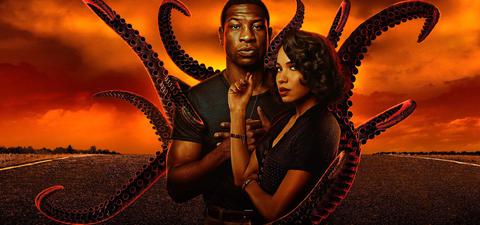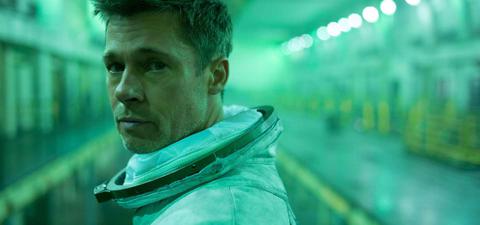The Dilemma of Passengers (2016)

Passengers is a science fiction film that is straightforward in nature. The ethical questions the characters face are more interesting than the story. The plot reveals itself in a utilitarian fashion with few characters. Its core interest is in just a small number of their decisions.
It’s not fair to do a simple review of Passengers, as its quality ties into the discussion of the core story. So we’re going to dive into the whole thing, discussing every facet of the plot. That said, spoiler warning. This discussion involves plot points which are essential to the tone of the film and are not in the trailers.
I give tons of bonus points for a film having a story that I didn’t see coming. A good surprise that the trailer hides, even one that’s revealed early in the film, is a tremendous plus for me.
If it helps, I feel the movie is worth watching. The music, visuals, and acting are all on point. A few issues with the plot detract from the larger experience and may bother some more than they bothered me. I believe it opens up room for a lot of discussion, as well.
Spoiler Warning: Do not read further if you do not want major elements of the plot spoiled for you.
Everyone here want spoilers? Okay, cool. Lets move on.
The big secret here is that Passengers is not a romance movie. Though advertised as one, what we get is something grim. Jim Preston (played by Chris Pratt) wakes up alone, with 90 years left of a 120 year journey to a new world. Trapped on this ship, Jim starts by looking for ways to return to hibernation. He then attempts to wake the crew, call home, and identify what happened.
With no productive results, he moves on. Left with no recourse, he changes his goal to enjoying the amenities of the ship. He drinks at the bar, he goes on walks outside of the ship, and otherwise enjoys his trip. However, the solitude, and the death sentence weigh on him and he becomes suicidal. Jim contemplates flushing himself out of the airlock before discovering Aurora.
Aurora Lane (portrayed by Jenifer Lawrence) is a reporter on a two way trip. When Jim discovers her, he contemplates waking her up as he obsesses over her and her writing. And this is where things get weird. He picks her as his ideal mate, wakes her up, lets her believe that her pod experienced a malfunction. He lets her wrestle with the reality that she will now die, all but alone, then begins to romance her.
This moral fracture relegates the initial malfunction and saving the ship to a subplot. To its credit, the movie treats what Jim does as wrong. It’s communicated via the dialog that he is aware of the consequences of his actions. Had Passengers ignored this a good deal of its audience may have overlooked it. Granted, it would have been a bland and straightforward affair.
Had it ignored and not brought this issue up, it wouldn’t be the first film to miss moral flaws. Movies frequently reflect the moral lens that they’re made through and absolve moral failures. The Little Mermaid teaches us that it’s okay to change who you are and give up your identity for love. Superman throws a barbell on a guy’s neck for being a jerk in a gym and is still the hero. Glossing over horrendous crimes is the bread and butter of Hollywood.
He objectifies and condemns a human being to a solitary death, robbing her of a meaningful impact on society. This crime is what adds a complex nuance to the film. It’s why I give lots of credit for even considering it, given how often film ignores similar issues. Without this plot, there isn’t much happening here.
So, when exploring this idea, there are two key aspects to it. There’s the position the movie says it has, and how it condones or condemns that position with action. It says it’s wrong, and what he does is monstrous. It’s acknowledged before and after the event by every character as being wrong. But then, the movie says that a drowning man is in extraneous circumstances. And Aurora forgives and embraces Jim, choosing to live with him.
We’re all drowning. Every last one of us is struggling in some way. We have our conflicts of body, mind, and spirit. I’m not happy with the answer that we should get what we want just because we were drowning. So I feel the need to specify that I disagree with the conclusion of Passengers. I feel that this issue is still viewed through the lens of an apologist.
So, we’re given this mixed message. We’re told both that taking away the agency of another being is wrong, but that it’s forgivable. There’s a reasonable argument that this is the definition of a violent crime. He’s robbed Aurora of her agency and personal choice. He does it with deliberate consideration in a pre-meditated fashion.
Moreover, Passengers fails to address the complex emotional responses to kidnapping. It treats her character arc as one of romance. The plot completely ignores the vulnerable emotional state in which she is making decisions. It ignores the subtlety of her beginning to identify with her captor.
Because of this, I’m incredibly unhappy with where Passengers goes. After exploring these issues, I wish there were someplace better it could have ended up. All that said and done, though, I do appreciate that it’s viewed at all. If people talk about this, and issues like this, we can get better media. And for that, I give Passengers a lot of credit. I do recommend it, and I recommend talking about it. People should be talking about the ethics of the actions of our protagonists. It would be nice if more movies addressed them appropriately, but… baby steps.






